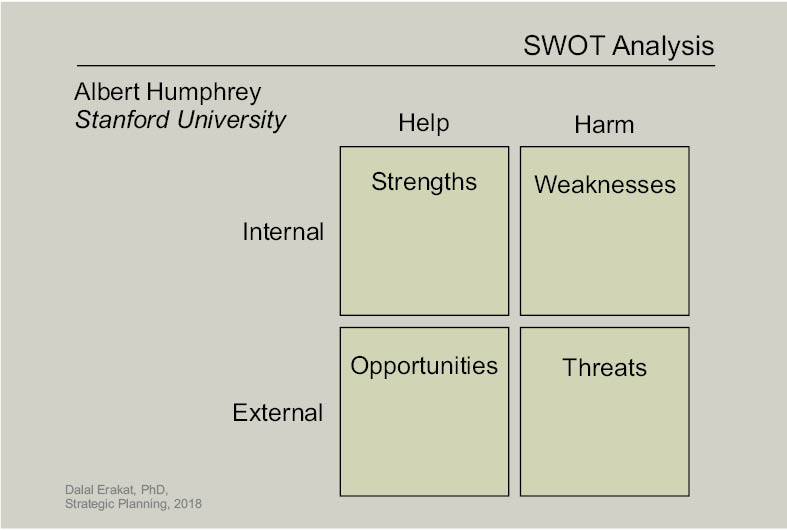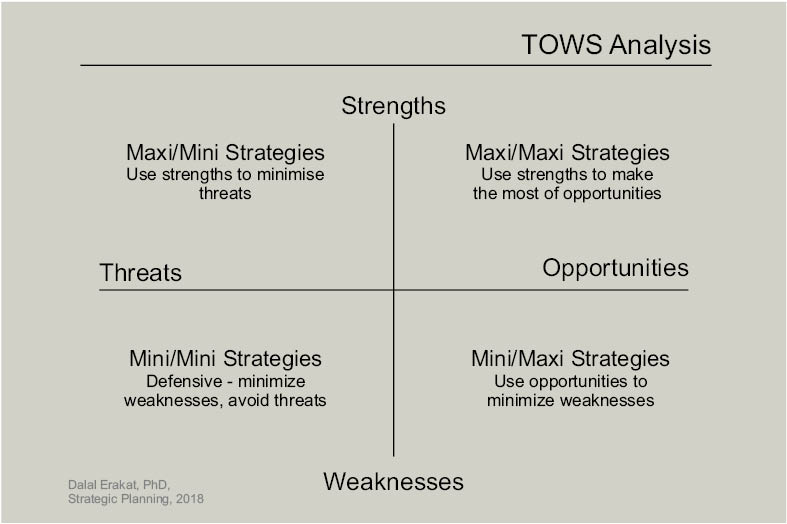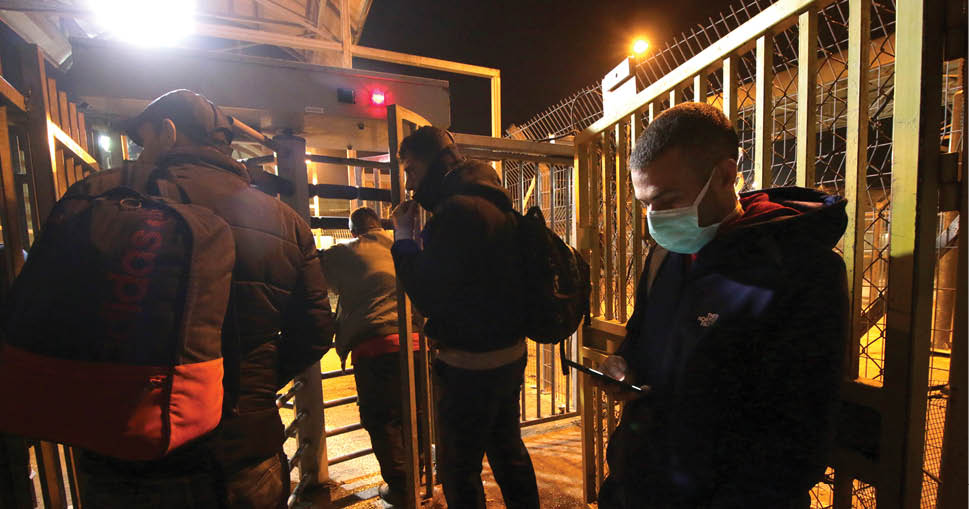Once this coronavirus COVID-19 crisis is over, we might not remember how details unfolded, but we will have to live with the consequences of our decisions and actions. We might not remember how we made it through, how we managed to survive; we will not even be sure that the pandemic is really over. But one thing is certain: when we come out of this crisis, we won’t be the same persons who walked in.
Palestine, like the rest of the world, is facing an outbreak of the coronavirus COVID-19, considered by some to be World War III, the new war of the twenty-first century. To counter any crisis, a nation needs leadership and strategic planning. On the national level in the age of COVID-19, it has been noted widely that the people of Palestine are content with and trusting their government – a phenomenon that has been missing for a while. At the grassroots level, we perceive the efficiency and high level of the performance of the Palestinian national team in managing the emergency. Moreover, the World Health Organization has praised the Palestinian performance, and, as a result, the official and public experience of countering COVID-19 is bridging gaps between the Palestinian National Authority (PNA) and the public.

To acknowledge the current reality and define the various roles, as Palestine is facing the current situation, it is important to provide definitions for the terms crisis, leadership, and strategic planning, since these terms are crucial components to passing through any crisis.
A crisis has been defined as “a serious threat to the basic structures of the fundamental values and norms of a system which under time pressure and highly uncertain circumstances necessitates making vital decisions.” (Boin et al, 2005).
Leadership includes planning, responsibility, and decision-making. In times of crises, emergencies, and disasters, leaders need strategic planning that centers on a clearly defined circular process based on a vision and values. Whether we are talking about homes, institutions, companies, ministries, or states, strategic planning must consider all aspects of personal, professional, private, and public life. This is particularly challenging when precise predictions are lacking, and the surprise component prevails. Collective brainstorming may help reduce uncertainties. As leadership entails taking responsibility for decisions made, we should not envy those in command. Their duty carries a heavy burden, and they will be held accountable for the outcome.
Some people define strategic planning as long-term planning. I would like to clarify here that strategic planning may require immediate decisions in the short term, but these decisions will impact and affect outcomes in the long run.
Many are under the impression that strategic planning depends only on a SWOT analysis. However, any strategic planning that doesn’t include a TOWS analysis is not a complete strategic plan. SWOT focuses on the status quo by identifying the reality and options, whereas TOWS aims to generate an action plan by utilizing the knowledge generated through SWOT.
As leaders take responsibility for their decisions, they must take into consideration that human beings enjoy a set of decision-making modes. Decisions can be made based on emotions, information, logic, or instinct. A leader must consider all these modes, and strategic planners must embody visionary, creative, organizational, and critical qualities, meaning that logic rather than emotions must guide their decisions.

Strategic planning as a process includes the following steps.
- Values, vision, and mission must be clearly defined.
- SMART strategic goals (specific, measurable, attainable, realistic, timed) must be set and updated regularly.
- A reality analysis of the current situation must be made, identifying SWOT (strengths, weaknesses, opportunities, and threats).
- To generate options for action, a TOWS analysis (threats, opportunities, weaknesses, and strengths) must be done through utilizing the SWOT analysis. TOWS enables us to strategize by eliminating weaknesses and threats and investing in strengths and opportunities. Planning requires both a SWOT and a TOWS analysis to reduce uncertainties to a minimum. Basically, in the current context, this involves trying to know the unknown.
- Key performance indicators (KPIs) must be coupled with every strategic goal, giving us a tool to assess the implemented measures according to verifiable criteria.
- Actions must be monitored and evaluated through an OODA looping cycle (observe, orient, decide, act).
- An outline of command and control must be established; this identifies who will be responsible for success or failure!
- Communications plans identify the target groups and what data have to be disclosed.
- Flexibility is critical in strategic planning. Following the evaluation process, the commanders of a strategic plan can decide to continue with the devised plan or opt to introduce tactical changes based on the results of the evaluation of an ongoing process. When this evaluation shows that measures are failing, however, plans should be declared ineffective and called off. It is important to remember that strategic alterations during the execution of a plan are not permitted; instead, tactical alternatives might be applied.

Applying theory to practice, implementing the concepts of strategic planning in the Palestinian reality as we attempt to counter the coronavirus, we must analyze reality by identifying our strengths, weaknesses, threats, and opportunities. This process will allow us to assess our options.
The Palestinian leadership initiated the practical application of the core concepts of leadership and strategic planning outlined above when it was quick to declare a state of emergency as soon as the first case appeared in Palestine. It acted according to the provisions of Chapter Seven of the Palestinian Basic Law that stipulates in Article 110 that in the event of a threat to national security from war, invasion, armed insurrection, or natural disaster, a state of emergency may be declared by decree by the president of the National Authority for a period not exceeding thirty days, with the possibility of extension for another thirty days. The Basic Law stresses the need to clarify the goal, region, and time covered by the emergency decree. We are witnessing a commitment to Article 111 that guarantees citizens’ “rights and freedoms during a state of emergency.”
Being aware of reality is essential for success and a prerequisite for the execution of a well-envisioned strategic plan that is inspired by reality and achievable goals rather than by dreams and wishes.
Crisis generates opportunities. In light of the COVID-19 crisis, we have many opportunities – for example, to restore trust between the political system and the people. Dealing with Palestinian internal problems strictly independently from the Israeli occupation, these opportunities, among others, are related to e-learning, e-government and other electronic services that Palestine has long desired to acquire.
We are all living a huge challenge as we extend all our efforts to contain this pandemic in Palestine. Leadership is key, as are decision-makers who enjoy crisis management and possess strategic planning skills, visionary people who are guided by shared values. It is everyone’s duty and responsibility to take this crisis seriously and to adhere to the instructions of the official authorities. In parallel, each individual should carry out his/her individual responsibilities towards society. The main strategic goals at this time are to prevent a spread of the virus. This is being accomplished by quarantining and treating the cases that have been recorded in Bethlehem, and recently in Ramallah, most of which have mild symptoms. All schools, daycare centers, and universities have been closed and are moving to online education to the extent that this is possible. All sports, cultural, leisure, and art institutions have been closed, conferences postponed. Restaurants are no longer allowed to seat customers, although some have switched to providing food for takeout. Tourists have been asked to return to their home countries, and those who remain are being encouraged to leave in the near future. The entry ban imposed by Israel has also affected the Palestinian occupied territory, as Israel has sole control over all entry points. A concern are the workers who still cross into Israel on a daily basis to work.
We must apply caution strategically and with a positive outlook. Sun Tzu in The Art of War states: “If you know the enemy and know yourself, you need not fear the result of a hundred battles. If you know yourself but not the enemy, for every victory gained you will also suffer a defeat. If you know neither the enemy nor yourself, you will succumb in every battle.” Unfortunately, there is much we do not know about this virus, but our leadership expends all efforts to assess what we can know and plans accordingly, guided by wisdom.
When this article was written in mid-March, the PA was continuing its work to turn facilities into temporary hospitals; laws have been passed to prevent price hikes, and efforts are being made to enforce this; discussions are under way about a potential curfew, and diplomats are working to bring back the hundreds of Palestinians who are currently stuck abroad, to mention only the most pressing issues. Remedies to deal with the economic side effects of this outbreak are being discussed. It is also important to mention the Palestinian political prisoners in Israeli jails as the Palestinian National Authority is calling upon the Red Cross and the United Nations to pressure Israel to release them or at least to ensure their safety and well-being under the threat of the pandemic.
Power does not come from what you can do, it comes from overcoming the things you thought you could not face! Who would have thought that Palestine under occupation and with its modest capabilities would surpass developed countries in its initial fast response in the face of this dangerous pandemic? We salute the individual and collective Palestinian performance at the official and popular levels.

As ordinary citizens we must rest assured that our government is engaged in prudent planning – and then cooperate and follow its policies and advice, even if that involves temporary sacrifices.
Once the crisis is over, we will not talk about how we succeeded, how we managed to survive – we may not even be sure whether the crisis is over! But there is one thing that is inevitable and natural for each of us: when we emerge from this crisis, we will have to live with the results! In order to be proud of the results, we must invest in all available opportunities. This requires us to respect the law, cooperate, show diligence, work hard, employ technology, share knowledge, use skills, enlighten our minds, and focus on our specializations and our commitment to our individual and collective responsibilities. If we all take positivity, optimism, and responsibility as slogans for this state of emergency, then hopefully we will come out with our heads raised high. In memory of Mahmoud Darwish, we repeat: We are a people who deserve life. “We have on this earth what makes life worth living.”


